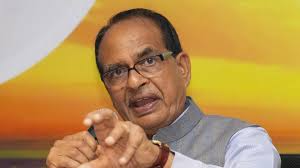Considering mechanism to curb ‘indiscriminate’ pricing of pesticides, says Agriculture Minister Shivraj Chouhan

In a decisive move aimed at shielding farmers from exploitation, Union Agriculture Minister Shivraj Singh Chouhan has announced that the government is actively considering mechanisms to prevent the indiscriminate pricing of pesticides across India. Addressing persistent concerns raised by farmers and stakeholders in the agricultural sector, Chouhan emphasized the urgent need for tighter oversight, standard pricing, and stricter enforcement to regulate the sale and quality of agrochemicals.
Growing Farmer Concerns Over Pesticide Prices
For years, Indian farmers have voiced concerns about the inconsistent and often inflated prices of pesticides, which are essential for crop protection. Many brands sell products at varying price points, often without clearly marking Maximum Retail Prices (MRPs) on their packaging. In numerous cases, pesticides of questionable quality flood rural markets, leading to crop failures and financial losses for small and marginal farmers.
According to Chouhan, this unregulated pricing pattern is unacceptable in a country where agriculture remains the primary livelihood for millions. “We are committed to ensuring that farmers are not cheated—neither by inflated prices nor by substandard products,” the minister said during a recent address.
Weekly Agricultural Monitoring Initiative
To ensure better regulation and responsiveness, the central government will now conduct weekly reviews of agricultural conditions across states. These reviews will include:
- Availability of seeds and pesticides
- Compliance with MRP labeling
- Pest and disease outbreaks
- Weather updates and advisory services
The initiative, part of the broader “Viksit Krishi Sankalp Abhiyan,” aims to address agricultural challenges in real time. District collectors and state agriculture departments will play a vital role in providing ground-level data to the Centre.
Legal Amendments on the Horizon
Chouhan also revealed that the government is preparing to tighten existing laws governing the agriculture input sector, including potential amendments to the Seed Act and Insecticides Act. These changes aim to:
- Make MRPs on pesticide labels mandatory
- Introduce heavier penalties for non-compliance and sale of counterfeit products
- Empower authorities with tools for better enforcement
- Improve traceability of products in the supply chain
Currently, loopholes in the legal framework have allowed unscrupulous sellers and manufacturers to bypass price and quality norms. These amendments, expected to be tabled in the upcoming Parliament session, seek to close those gaps.
The Fight Against Fake and Substandard Products
Another alarming issue highlighted by Chouhan is the rampant circulation of fake pesticides and seeds in rural markets. These counterfeit products not only fail to protect crops but can also cause irreparable damage to farmland. Farmers, especially in remote regions, often fall prey due to lack of awareness or alternatives.
Chouhan promised strict action against such malpractice. “There will be zero tolerance for those who deal in fake agricultural inputs. We are considering a new law that introduces criminal liability and imprisonment for offenders,” he said.
The ministry is collaborating with state governments to strengthen inspection mechanisms and random sample testing of pesticide batches in the market.
Digital Tools for Transparency
In a bid to modernize agriculture oversight, the government plans to integrate digital monitoring tools, such as mobile applications and data dashboards. Farmers will soon have access to an app that allows them to:
- Verify genuine pesticide brands
- Check real-time prices and MRPs
- Report overpricing or counterfeit products
- Receive weather alerts and pest control advisories
The move is aimed at empowering farmers with accurate, on-demand information to make informed decisions and avoid exploitation.
Industry Reaction and Challenges Ahead
While farmer advocacy groups have welcomed the government’s proactive stance, some industry players are approaching the proposals with caution. Several manufacturers argue that pricing varies due to research costs, distribution logistics, and regional demand. However, experts note that basic transparency and uniformity are long overdue in the Indian pesticide market.
Enforcement remains a major hurdle. With thousands of distributors across the country and limited manpower for regulation, ensuring compliance will require interdepartmental coordination and perhaps private-sector collaboration.
Farmer Voices and the Need for Reform
Across India, farmers have shared stories of being misled by unscrupulous dealers selling overhyped or fake products. In drought-affected areas, the impact of a single poor pesticide batch can be financially devastating. With input costs rising and output prices often stagnating, every rupee spent counts.
Sunil Kumar, a farmer from Madhya Pradesh, said, “Sometimes the pesticides don’t work at all, and we don’t even know if it was fake. We need the government to check what is being sold to us.”
Shivraj Chouhan’s initiative directly addresses such grievances and signals a more farmer-centric approach in agricultural policy-making.
Conclusion
The push to regulate pesticide pricing and quality underlines the government’s growing recognition of the structural issues faced by Indian farmers. By introducing legal reforms, digital tools, and weekly monitoring, Chouhan’s ministry is taking a multi-pronged approach to protect the backbone of the Indian economy. However, effective implementation and sustained political will remain crucial to translating these announcements into lasting change.
If executed well, these measures could mark a turning point in India’s agricultural input regulation—ensuring transparency, fairness, and farmer welfare in every pesticide bottle sold.






